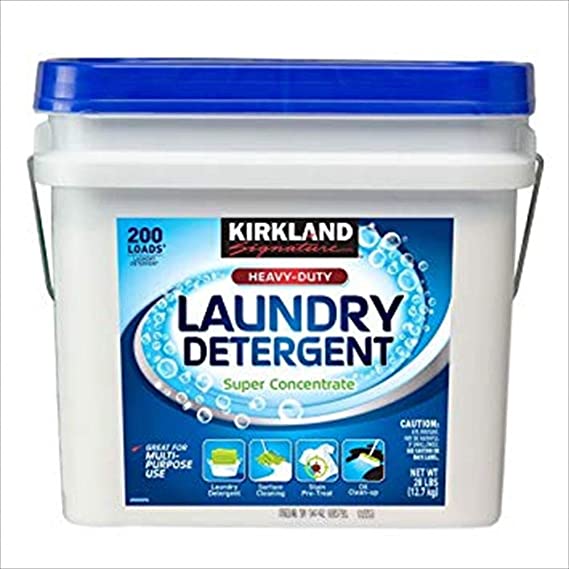
Is Kirkland Laundry Detergent Septic Safe? (Read First)
Cleaners Talk is reader-supported. This post contains affiliate links, we may earn a commission at no additional costs to you. As an Amazon Associate we earn from qualifying purchases.
A septic system is not much to think about, yet if it fails, you'll have a large problem on your hands.
So, you need to make sure that you use the right detergent to make sure you don't cause any problems. Some of you might be wondering if Kirkland laundry detergent is okay to use for your septic system.
You can use Kirkland laundry detergent in a septic system. It is both safe for your septic system and the planet; it has been found to be very environmentally responsible by numerous septic system companies.
To understand why some detergents are okay for septic systems and some aren't, we need to cover why Kirkland is good for septic systems and why bad detergents may negatively affect them.
Why Is Kirkland Detergent Septic Safe?
Septic systems work by allowing natural bacteria to break down the waste, and certain detergents can contain chemicals that will kill these natural bacteria.
However, Kirkland Signature Ultra Clean Laundry Detergent is environmentally responsible and safe for septic tanks. The reason for this is that it has a special biodegradable formula, which breaks down once it is in the septic tank without affecting its natural ecosystem.
What To Look for In a Detergent Safe for Your Septic System
There are a few things that you need to look for and look to avoid in detergents for your septic system.
As a rule of thumb, you need to:
- Use liquid over powder detergent.
- Avoid phosphate detergents.
- Avoid antibacterial detergents.
- Use Oxy laundry products if you can.
How Do Other Detergents Damage My Septic System?
Other kinds of detergents may contain harmful chemicals, particularly:
- Phosphates
- Bleach
Both of which will often build within the tank and cause many kinds of issues.
Phosphates are seriously bad for any kind of septic system because of how they throw off the delicate balance of microbes in your tank – if phosphates get out into the environment, then they can create algae which will be damaging to animals.
On the other hand, bleach doesn't encourage extra microbe growth but kills it. This means that the good bacteria you are relying on to break down the waste inside the septic tank dies too, and the solids in your septic tank will quickly begin to build up.
Why Are These Chemicals Safe in Laundry But Not In Septic Tanks?
When these detergents are used on your clothes, they are harmless enough because they break down into less damaging components, mostly:
- Water
- Salt
But once within the tank, there is no way that they can break down safely – and chlorine or bleach are the worst for it. If you have a septic tank, then you need to avoid these at all costs.
How Many Laundry Cycles Can I Do Safely With A Septic Tank?
It has been suggested by experts that you don't do too many loads of laundry at once so as not to put undue stress on the septic tank. Instead, it is thought you do a single load a day, for as long as you need to.
On average, a washing machine uses between 30 and 40 gallons of water on every load it cleans. Five loads of laundry a day would therefore pump about 150 to 200 gallons into your lateral pipes. Since most septic systems a decade or older have between 600 and 900 square feet of absorption land, it can be overloaded.
Can I Use Fabric Softener with My Septic Tank?
Unfortunately, you cannot use fabric softener if you use a septic tank, as it has approximately the same effect as cooking grease poured down the drain. The reason why they make your clothes soft is due to a nearly intangible film of chemicals on your clothes, which is very bad for your septic tank.
Conclusion
In conclusion, Kirkland laundry detergent is completely safe for your septic tank, but any detergents with chlorine or bleach are a bad idea as they can build up in your tank.
Fabric softener can also cause problems due to its grease-like effect.
Anything which will tip the delicate ecosystem of bacteria in your septic tank will lead to issues, so check the packaging to make sure you aren't putting anything down there which is dangerous.
To play it safe, stick to doing one laundry load per day, for as many days as you need to. That will ensure you aren’t overloading the septic system.
Related:

